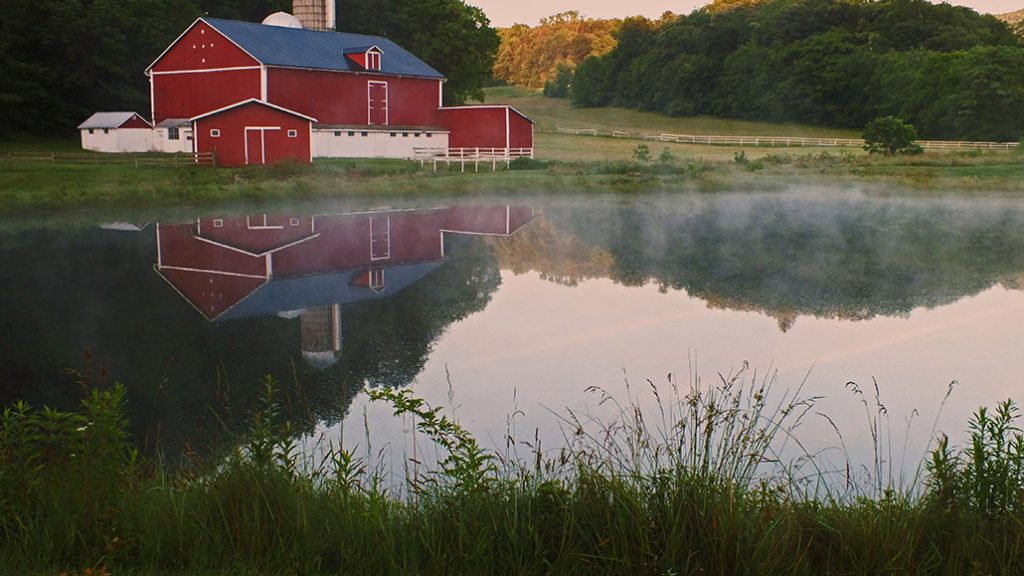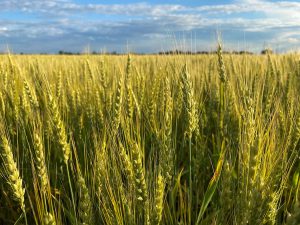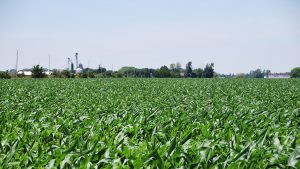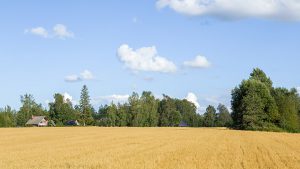The carbon tax
SEEKING AN EXEMPTION

THE FEDERAL CARBON tax on fuels will reach $170 per tonne by 2030. It is an added expense grain farmers can’t afford.
| WHAT YOU NEED TO KNOW • The Government of Canada says, “A price on carbon pollution is an essential part of Canada’s plan to fight climate change and grow the economy.” • The federal carbon tax on fuels will reach $170 per tonne by 2030. • The additional cost for grain drying alone will be $46 an acre. • If passed into law, Bill C-206 will provide a carbon tax exemption for natural gas and propane used on farm. • See page 10 to read more about the carbon footprint of Ontario grains. |
The total impact of the carbon tax (both indirect and direct costs) is estimated by Grain Farmers of Ontario to reach $122 to $160 per acre.
The new price of carbon will cripple farmers if there is no change to the pricing scheme outlined by the government in the Healthy Economy and Healthy Environment plan. The additional cost for grain drying alone will be $46 an acre. Farmers are already struggling with the first phased-in increases that have been implemented over the past two years.
As gas bills came in last fall, many farmers took to social media to share the real cost of the carbon tax, highlighting the line item that added thousands of dollars to their amount owed.
“I think we all had an idea the carbon tax would have an impact, but seeing it on a slip or a bill is when it really became clear that this was the reality that was going on,” says Brendan Byrne, chair of Grain Farmers of Ontario, who received several calls from farmer-members within his district (District 1 – Essex) during harvest. “With the escalating costs in the future it is going to be an even more significant hit to farmers’ bottom line.”
FIRST STEP
Grain Farmers of Ontario has been urging MPs to pass an exemption for natural gas and propane used on-farm, similar to the exemption already in place for most gasoline and diesel fuels.
In February 2020, Philip Lawrence, Conservative Member of Parliament for Northumberland—Peterborough South, introduced a private member’s bill, Bill C-206: An Act to Amend the Greenhouse Gas Pollution Pricing Act (qualifying farming fuel), to put this exemption in place.
A year later, in February 2021, the bill passed second reading in the House of Commons and was referred to the Standing Committee on Agriculture and Agri-Food for discussion and recommendations. (This process was still ongoing at press time and could take several more weeks before a third reading in Parliament will decide if the bill goes to the Senate for a vote in order to become law. Please check www.ontariograinfarmer.ca for developments of this story.)
Grain Farmers of Ontario was pleased to see this action being taken and urged all MPs to support the bill. Only one Liberal voted in favour, Francis Drouin (MP for Glengarry—Prescott—Russell). All opposition parties voted in favour.
Grain Farmers of Ontario will be submitting comments to the Committee, and meeting with members of the Committee as well as MPs to keep up the support for Bill C-206. We will also continue to put pressure on the federal government itself to put in place an exemption, in the chance that this private member’s bill does not become law before an election is called or loses support from MPs along the way.
“We are constantly getting new regulations to follow or taxes that we can’t pass the cost of onto anyone else. We bear the brunt of those costs,” says Byrne. “The government should not be making money off of a tax that inhibits a farmer’s ability to produce viable grain. The Carbon Tax does that and it makes no sense.”
COMMERCIAL DRYING
Bill C-206 will alleviate the additional cost of propane and natural gas used on-farm — and Grain Farmers of Ontario sees this as an important first step in reducing the burden of the carbon tax. However, farmers will still face higher costs if they take their grain to an elevator for commercial drying as the carbon tax will be passed along to them.
“We can’t afford to absorb the carbon tax, it’s just too much; there’s not those kind of margins in the elevator business,” says Dwight Foster, an eastern Ontario grain farmer and owner of North Gower Grains grain elevator. “Our carbon tax bill was double what it was last year, and it appears next year won’t see much change other than upward.”
Grain Farmers of Ontario believes all grain drying should be exempt from the carbon tax. Ontario’s grain elevators play an important role in making our crops viable for domestic and international markets. We understand their cost of operation is being impacted by the carbon tax and we don’t want to see that cost passed along to our farmer-members.
Foster fears the impact of the additional increases still to come over the next nine years.
“It’s only going to get worse; and I feel strongly that we who are very dependent on fossil fuels are being taxed beyond measure, we don’t have an alternative as we can’t dry our corn, soybeans, and wheat with wind mills and solar panels.”
CONCERNS
Another frustration for many grain farmers is the lack of acknowledgement for the actions they have taken to improve and protect the soil, reduce emissions, and prove their environmental stewardship. Greenhouse gas emissions are produced when we grow our crops (see page 10 for details), however, practices such as reduced tillage, cover crops, and crop rotation have significantly reduced our carbon footprint over the past 30 years.
In addition to the unaffordability of the government’s current climate action plan, Grain Farmers of Ontario has several other concerns it has raised with federal officials. There is a lack of off-the-shelf solutions for grain farmers to reduce their carbon emissions. There is a lack of opportunities to participate in the new carbon economy that is being created including no meaningful carbon credit protocol for grain farmers. There is no recognition within the system of the carbon sequestration that already exists on farm for wetlands and other biodiverse land.
“We are constantly voicing our concerns with government,” says Byrne. “If we aren’t involved and having these discussions now it’s not going to get any better. It’s our job at Grain Farmers of Ontario to make sure they understand how this is affecting us at the farm level.”
Farmer-members are also encouraged to contact their MPs and share the impact the carbon tax has had on their business, if possible through tangible increased costs. •


























